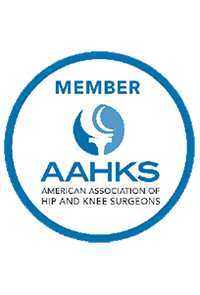Autologous Chondrocyte Transplantation
Autologous chondrocyte implantation (ACI) is a relatively new, state-of-the-art procedure used to treat isolated full-thickness (down to bone) articular cartilage defects of the knee. It has been approved by the Food and Drug Administration for cartilage defects located at the end of the femur bone (thigh).
ACI has also been performed for defects of the patella (knee cap) in addition to other joints of the body.
Treatment
Autologous chondrocyte implantation is a two-stage operative procedure.
The first procedure is performed arthroscopically in less than 30 minutes. The surgeon will harvest a small piece of articular cartilage from the patient’s knee, typically the size of one or two Tic-Tacs. This cartilage biopsy is then sent to a laboratory where the biopsy is enzymatically treated in order to isolate the chondrocytes, which are the cartilage-producing cells of the body. Once these chondrocytes are obtained, they are then expanded in number and sent back to the surgeon approximately 6 to 8 weeks later for implantation.
The second-stage operation is an open procedure whereby a small patch is sewn over the articular cartilage defect. The chondrocytes that have been harvested and expanded are then injected underneath this patch where they adhere to the patient’s knee to form what is known as hyaline-like cartilage which resembles the native joint cartilage. Following implantation there is a period of restricted weight-bearing for up to 8 weeks. During this time, physical therapy emphasizing range-of-motion of the knee and strengthening activities is prescribed. A surgeon may also recommend the use of continuous passive motion (CPM) machine to improve the graft’s success. Return to light sports activities is typically allowed at approximately 6 months with return to full sports activities between 9 and 12 months following the procedure based on the recovery.
The overall success rate of ACI is approximately 85% in allowing patients to return to pain-free activities.
Treatment Highlights





